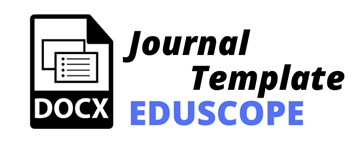Penerapan Kelas Virtual Sevima Edlink dengan Pendekatan Realistik untuk Memecahkan Masalah Matematika Kelas XI MAN 3 Jombang
DOI:
https://doi.org/10.32764/eduscope.v7i2.2033Abstract
ABSTRACT
Education is the most important aspect for the progress of a nation. In the last year, Indonesian education is being tested by the COVID-19 pandemic, which forces all those involved in education to carry out online learning routines. This is a new challenge for both teachers and students. The teacher must think of the most effective way for learning so that it does not seem monotonous and boring. One alternative is with semiva edlink virtual class. The purpose of this study is whether there is an increase in mathematical problem solving skills by using a virtual class Sevima Edlink with a realistic approach. This research is a quantitative research with pre-experiment that applies the Sevima edlink application as a learning medium using a realistic approach to improve problem solving skills. The sample in this study was class XI IPS 6 MAN 3 Jombang, amounting to 47 students. The data were processed using inferential statistical techniques. The results of this study indicate that there is an increase in the value of students' mathematical solutions before the treatment (pretest) and after the treatment (posttest). Judging from the results of the statistical price = 20,207, with db = 46 and sig. = 0.00 < 0.05 or H0 is rejected. Thus H1 is accepted, which means there is an increase in mathematical problem solving ability by using a virtual class Sevima Edlink with a realistic approach









